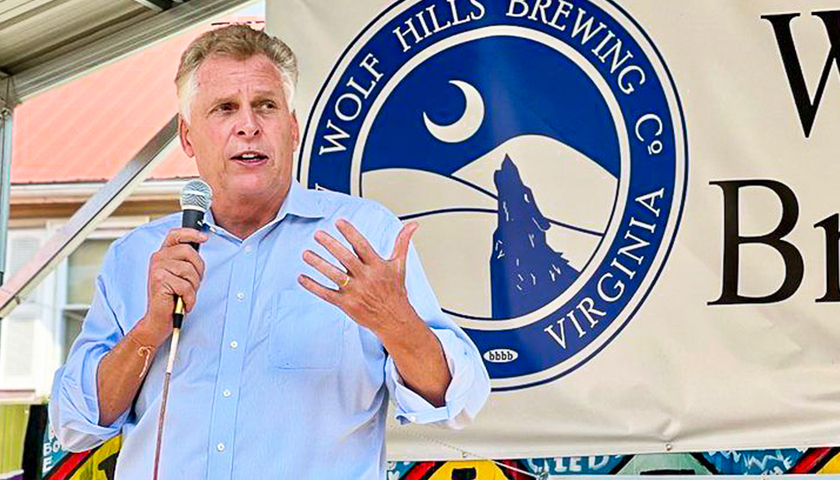A Richmond judge dismissed a lawsuit over a missing signature on Terry McAuliffe’s election paperwork on Wednesday. Attorney Amina Matheny said she’s appealing the lawsuit to the Virginia Supreme Court.
“Our position was that the Department of Elections should not have accepted an unsigned declaration of candidacy,” Matheny said, “And the judge ruled that candidates do not have to sign the declaration of candidacy.”
“That is how he interprets the statute,” she told The Virginia Star.
“You have two choices: appear before a notary or before two witnesses who are qualified voters,” Circuit Court Judge Bradley Cavedo said according to Courthouse News. “Mr. McAuliffe chose the second choice and I have to take what is on the form at its face.”
Matheny said the lawsuit included another issue. “There’s a constitutional prohibition where you can’t run for governor twice, whether it’s consecutive or nonconsecutive, that was our position, and he ruled that the constitution allows for a governor to run for a non-consecutive term.”
Matheny is representing several similar lawsuits in jurisdictions across Virginia. Roy Perry-Bey was the plaintiff in the case heard Wednesday. Matheny said she’s asking the courts to put the other cases on hold while asking for the Supreme Court to hear the case.
“We’re doing an expedited appeal so we’re trying to get it done within next three weeks,” she said.
The Republican Party of Virginia has also announced a similar lawsuit.
Perry-Bey has asked for an investigation by the Department of Justice, and Attorney General Merrick Garland, arguing that McAuliffe’s action blocked black candidates from the coveted top-of-the-ballot position.
Before the hearing, conservative legal group the Public Interest Legal Foundation (PILF) filed an amicus brief supporting the lawsuit in the Richmond Circuit Court. Adams and the PILF have been supporting former President Donald Trump’s allegations of election fraud.
In the brief, Adams hinted that relevant Virginia authorities might be unconstitutionally suspending Virginia law.
“Rules exist for a reason. Some rules help ensure a level playing field,” PILF Counsel J. Christian Adams wrote in the brief. “The Foundation takes no position on the merits of the plaintiff’s cause or the policies underlying Virginia’s ballot access rules implicated here. The Foundation — as an impartial proponent of the rule of law and the equal and just execution of election contest rules — believes the Court must consider all relevant authorities in its disposition of this dispute.”
“The Anti-Suspension Clause prohibits the government from being able to suspend or rewrite laws without legislative actions in Virginia. Consent of the governed is eroded when officials do not follow the rules that govern our elections. We hope the court will consider this important principle when making any ruling,” Adams said in a press release.
According to Courthouse News, Assistant Attorney General Carol Lewis spoke for the defense, arguing that the statute deliberately provides options for how the declaration of candidacy is filed.
“The Virginia General Assembly had the intention to write this provision in that way,” Lewis said.
– – –
Eric Burk is a reporter at The Virginia Star and The Star News Network. Email tips to [email protected].
Photo “Terry McAuliffe” by Terry McAuliffe.





